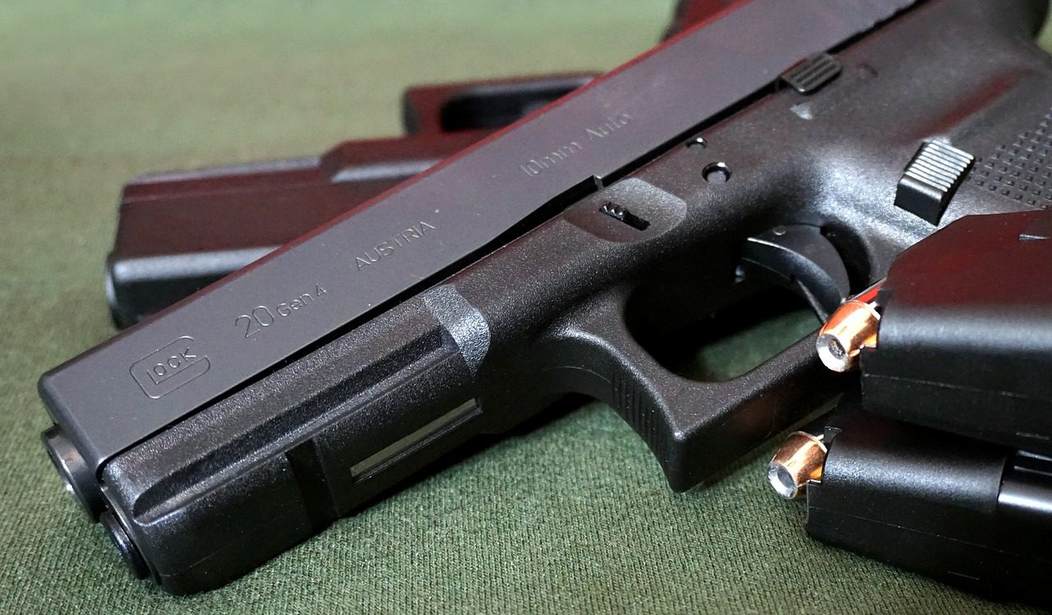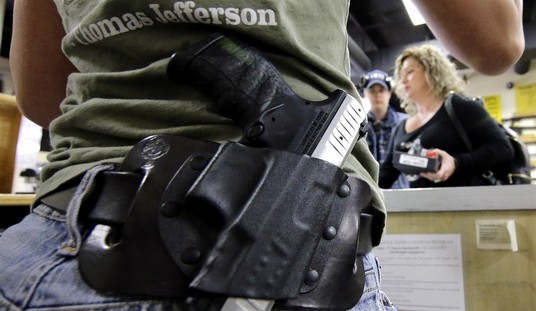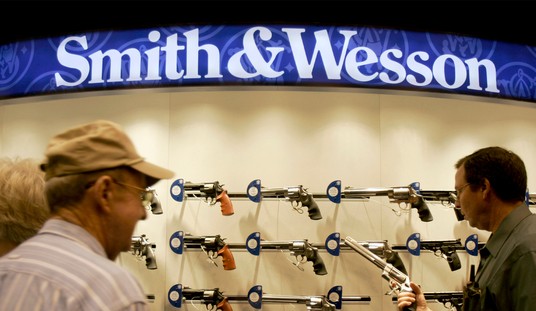I can’t say that no one would mistake Massachusetts as a pro-gun state, in part because I don’t know that I want to just assume everyone has enough intelligence to recognize the truth like that. There’s bound to be someone that actually thinks that way and so I’m not opening myself up like that.
Most of us know better, though. We’ve seen the state’s long history of gun control and while they’ve been relatively quiet in that neck of the woods, all things considered, it’s not like they’re doing anything we could consider pro-gun.
And the latest proposal isn’t really helping change anyone’s mind.
We’ve touched on the bill a few times, but just why is this a trainwreck in the making? Well, let’s get into a few reasons.
Under the bill, teenagers can start to apply for a firearms ID card at 14 with parental permission, but only for a “long gun.” However, they will not receive the card until they turn 15 and can only purchase a firearm at 21.
One club member said that it seemed as if the state’s aim is to prevent younger people from becoming involved in shooting.
The changes could also adversely impact the Boy Scouts of America and its firearm safety courses. The rifle course and shotgun merit badges course are Scouting’s two most popular badge courses.
“We teach gun safety,” said Mark Barbernitz, executive director of the Heart of New England Council, which has a camping facility at Treasure Valley in Rutland and a second campsite in New Hampshire. Scouts as young as 11 are allowed to participate in the rifle course. The shotgun course is offered subsequent to the rifle course and is open to Scouts 14 and older.
This focus on cutting off youth from shooting has become a major focus for gun control advocates. It seems they somehow think that such laws will reduce violent crime among youth offenders.
However, it should be remembered that this isn’t going to stop teenage gang-bangers from shooting up their neighborhoods. What this will do is put an end to things like youth shooting programs such as the Boy Scouts, as noted above.
That means this is impacting youth safety education.
These programs–every single one I’ve ever encountered–has gun safety education front and center. Kids have to learn those rules before they ever touch a firearm and those rules are reenforced over and over during the training. In fact, back in my youth as a Boy Scout, I worked at the rifle range at Camp Chase S. Osbourn here in Georgia one summer. That’s damn sure how we did it.
Without safety training, I can’t help but think we’ll start to see gun accidents among youth increase because when you make something forbidden, you make it more alluring to kids. That’s a trainwreck in and of itself.
Only, that’s not the totality of the law.
The measure that requires all firearms and ancillary devices like grips, muzzles and magazines, clips or other feeder devices to be etched with unique serial numbers adds a huge burden to law enforcement, Fowler said.
Etching serial numbers on police firearms would be time-consuming. Added to that would be the task of ensuring all gun owners complied with the mandate and then collecting those numbers.
“How will we collect that information, who will maintain the database?” Fowler asked. And collectors of firearms, especially antique arms, could be loathe to etch their guns, anticipating a decline in value if the weapon is defaced.
This is why critics of the law say it will effectively ban every gun in the state.
Sure, someone can add a serial number themselves, but will it be unique? Probably not, which means they’ll have to have some third party assign those, creating a massive bureaucracy just to make sure everyone has a serial number for all their components.
Meanwhile, the bad guys just won’t worry about it.
Funny how that keeps popping up, ain’t it?
Moreover, that will prohibit all currently-available parts from being sold in the state, since none have serial numbers. Sure, a few companies will serialize components so they can service Massachusetts customers, but how long will that take?
Then, of course, there’s the training requirement that offers up some issues.
“If you own a gun, you won’t be able to leave your house with it,” Wallace said. In discussing the touted “listening tour,” Wallace accused Day of lying to gun owners who attended the meetings. He promised us that lawful gun owners were not being targeted but rather that the bill would streamline the state’s laws and mostly took aim mostly at ghost guns and requirements that all new gun owners participate in gun safety and a live fire class.
While Wallace agreed that requiring newly licensed gun owners to take a live fire class is commendable, the curriculum for training deescalation techniques and active shooter responses does not exist. “That would be a $1,000 course.”
Wallace isn’t wrong on this one, either.
Massachusetts is considering a bill that will have longstanding repercussions and would likely make it virtually impossible for anyone except the very wealthy to enjoy their Second Amendment rights. It doesn’t outright prohibit anything, but it does plenty of damage otherwise.
The good news is that, as of right now, the Massachusetts legislature hasn’t even assigned this bill to a committee. This is still very early in the process, which means lawmakers may well nerf this down a bit. They might also just let it die in committee knowing full well nothing like this will survive the inevitable legal challenge.
Yes, even in Massachusetts.
In the meantime, if you’re in Massachusetts, dig in and start calling your legislators. Let them know not to support his horrendous piece of infringement.








